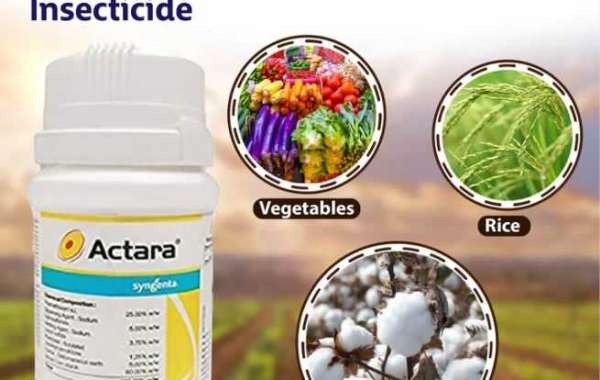1. Ensuring Crop Yield and Quality
Pesticides are instrumental in safeguarding crops from a plethora of pests, diseases, and invasive species that can decimate agricultural yields. Insects, weeds, fungi, and pathogens pose significant threats to crops, and without effective pest management, farmers risk substantial losses in both the quantity and quality of their produce. Pesticides, when used judiciously, provide a shield against these threats, ensuring that crops reach maturity, yield optimally, and meet the required quality standards.
2. Mitigating Economic Losses
Agriculture is not merely a means of sustenance; it's a major economic sector contributing to the livelihoods of billions worldwide. Pesticides act as a financial safeguard, preventing substantial economic losses that can result from crop failure. When crops are protected from pests and diseases, farmers can harvest healthier and larger yields, thereby securing their income and supporting rural economies.
3. Enhancing Food Security
The global population is on an upward trajectory, and food security is a pressing concern. Pesticides play a pivotal role in enhancing food security by preventing pre-harvest losses. With a growing population to feed, ensuring that crops are protected from pests and diseases is critical to meeting the nutritional needs of communities around the world.
4. Reducing Environmental Impact
While the use of pesticides has been criticized for its environmental impact, modern agricultural practices prioritize the use of integrated pest management (IPM) strategies. IPM involves a holistic approach that combines the use of pesticides with cultural, biological, and physical control methods to minimize the overall environmental footprint. This approach reduces the quantity of pesticides used and encourages sustainable practices that protect both crops and ecosystems.
5. Meeting Quality and Safety Standards
Pesticides are integral to producing crops that meet stringent quality and safety standards. Pests and diseases not only compromise the appearance of crops but can also introduce harmful pathogens that pose risks to human health. Pesticide use helps mitigate these risks, ensuring that the food produced is safe for consumption and meets regulatory guidelines.
6. Supporting Agricultural Innovation
Pesticide research and development drive innovation in agriculture. Efforts to create safer and more targeted pesticides have led to the development of new formulations that are less harmful to non-target species and ecosystems. Additionally, advancements in biotechnology have led to the creation of genetically modified crops that are inherently resistant to pests, reducing the need for excessive pesticide use.
7. Addressing Climate Change Challenges
Climate change introduces new challenges to agriculture, such as altered pest behavior and increased vulnerability to certain diseases. Pesticides can play a role in adapting to these challenges by protecting crops from the emerging threats posed by changing climatic conditions.
8. Preserving Limited Resources
Pesticides contribute to the efficient use of limited agricultural resources such as land and water. By preventing pest-related losses, pesticides allow farmers to maximize their productivity on existing farmland, reducing the need to expand agricultural land into sensitive ecosystems.
Actara insecticide
Actara insecticide, containing the active ingredient thiamethoxam, is a widely used systemic insecticide in agriculture. Belonging to the neonicotinoid class, it targets pests' nervous systems, effectively controlling various insects like aphids, whiteflies, and thrips. Its residual activity offers lasting protection, minimizing frequent applications. While valued for its efficacy, responsible use is crucial to address concerns about its impact on non-target organisms and pollinators. Overall, Actara serves as an important tool for integrated pest management, aiding in pest control while promoting sustainable agricultural practices.
Bayer Movento Energy
Bayer Movento Energy, featuring spirotetramat, is a systemic insecticide offering advanced pest control. Its unique mode of action disrupts pests' lipid biosynthesis, providing broad-spectrum protection against aphids, whiteflies, and more. With translaminar and acropetal movement, it reaches all plant parts for prolonged efficacy. Movento Energy's impact on various life stages and compatibility with integrated pest management (IPM) strategies make it a versatile choice. Responsible use is crucial, adhering to recommended guidelines to ensure effective pest management while minimizing environmental impact. In agriculture, Movento Energy plays a vital role in sustainable pest control solutions.
Balancing Act: Sustainable Pesticide Use
While the importance of pesticides in farming is undeniable, it is imperative to strike a balance between agricultural productivity and environmental protection. The indiscriminate and excessive use of pesticides can lead to negative consequences, including the development of pesticide-resistant pests, harm to non-target organisms, and contamination of soil and water resources.
A holistic approach to pest management involves integrated pest management (IPM), as mentioned earlier. IPM emphasizes the responsible and targeted use of pesticides alongside other control methods, considering the ecological, economic, and social dimensions of agricultural systems. Furthermore, investing in research to develop environmentally friendly and less toxic pesticide formulations can contribute to sustainable farming practices.
In conclusion, pesticides are undeniably important tools in modern agriculture, ensuring crop yields, economic stability, and food security. However, their usage must be approached with caution, adhering to responsible practices that prioritize environmental stewardship, human health, and long-term sustainability. As we navigate the complex landscape of agriculture, the responsible use of pesticides remains a critical aspect of our efforts to meet the growing demand for food while safeguarding the planet's ecosystems for future generations.










